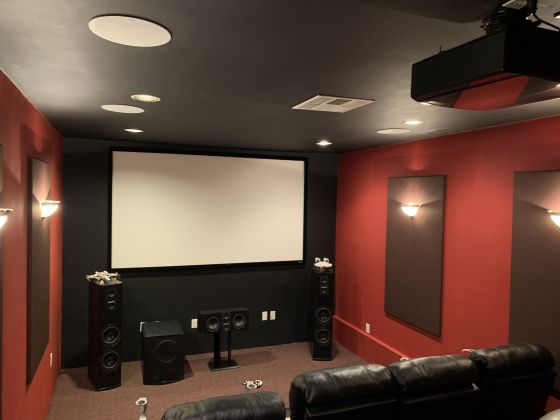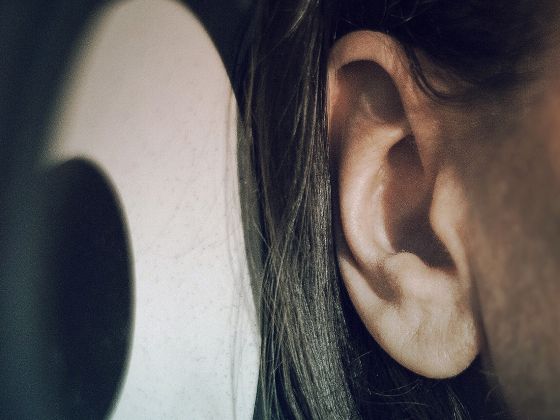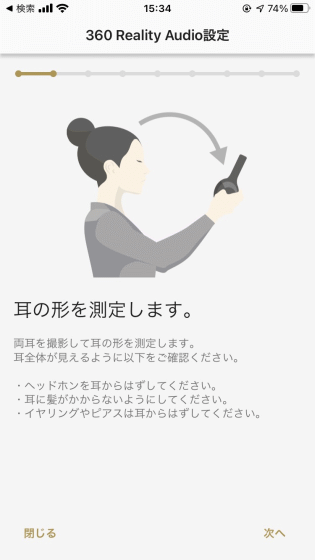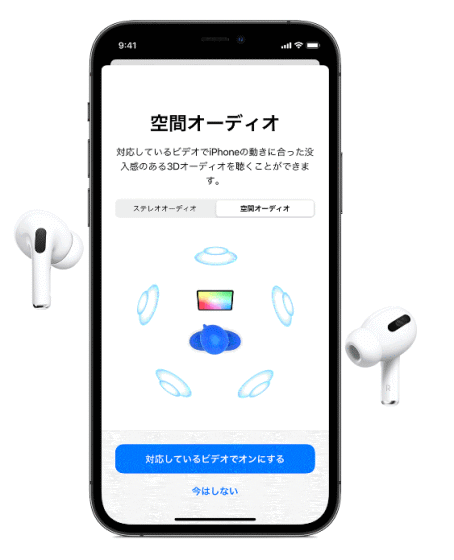How does the surround sound system work in headphones?

There are many technologies that allow you to experience
Everything you need to know about surround sound in headphones --SoundGuys
https://www.soundguys.com/surround-sound-headphones-guide-49389/
◆ Surround sound system in theaters
The history of surround systems in theaters begins with Disney's 1940 Fantasound . Fantasound was a system that reproduces sound from the front, back, left and right by arranging 54 speakers at appropriate positions in the theater. However, because the system was expensive and too complicated, it was adopted in only two theaters. Then, until the 1960s, surround sound systems had disappeared from the market, SoundGuys said.
In 1976, the sound maker Dolby introduced the theater surround sound system ' Dolby Stereo .' Dolby Stereo is said to have spread to many theaters due to the influence of the Star Wars hit released in 1977. After that, the development of the surround sound system continued, and in 2012, the theater system ' Dolby Atmos ', which also places speakers on the ceiling, appeared. For home theaters, the ' 7.1.4 Dolby Atmos system ' with four overhead speakers has also appeared.

◆ Surround sound system for headphones
Previously, the method of arranging multiple speakers on both sides of the ear was used as a method of realizing a surround sound system with headphones. With this method, a surround system can be realized with the same mechanism as a theater or home theater, but there was a problem that the volume and weight of the headphone body increased by installing multiple speakers. Therefore, a technology called 'virtual surround' has emerged that realizes surround playback with two speakers by virtually reproducing the direction in which sound is heard.
By the time the sound reaches the eardrum, it collides with the shoulders, head, and outer ear, and the animal recognizes the change in sound due to the collision to know the direction in which the sound is heard. This effect that appears when sounds collide

Sounds affected by HRTFs can be recorded by inserting a small microphone into
The method of applying HRTFs to voice data by software processing requires high processing power, but recent technological developments have led to the emergence of small chips with high performance and low power consumption. In addition, by combining a virtual surround sound system and motion tracking, it is possible to build a realistic surround system in which the position of the sound source does not change even if the head is turned. For these reasons, in recent years, standards for virtual surround sound systems have been appearing one after another from various companies.
◆ Major virtual surround sound system standards
'Dolby Atmos for Headphones' provided by Dolby is a virtual surround system that can virtually handle hundreds of channels, and is implemented on PCs, Xbox One , Xbox Series X , Xbox Series S, and smartphones. SoundGuys rate Dolby Atmos for Headphones as an 'industry leader.' In addition, 'DTS Headphone: X', a virtual surround sound system developed by audio technology development company DTS, also has the same functions as Dolby Atmos for Headphones.
Sony's ' Sony 360 Reality Audio ' and Creative 's ' Creative Super X-Fi ', which is known for its sound cards, take pictures of the ears and measure their shapes to measure the shape of each user's ears. You can experience a natural surround sound that corresponds to the shape. In addition, with the 'Tempest 3D audio technology' adopted in PlayStation 5, it is possible to select the profile that suits the user's ear from five profiles.

'Spatial audio' provided by Apple is

Windows 10 has a free virtual surround system ' Windows Sonic for Headphones ' that allows you to enjoy three-dimensional sound even with content that does not clearly support this function.

Finally, SoundGuys said, 'If you have multiple virtual surround sound systems running at the same time, they may not work properly,' and recommends trying one by one when trying out virtual surround sound systems.
Related Posts:
in Hardware, Posted by log1o_hf







